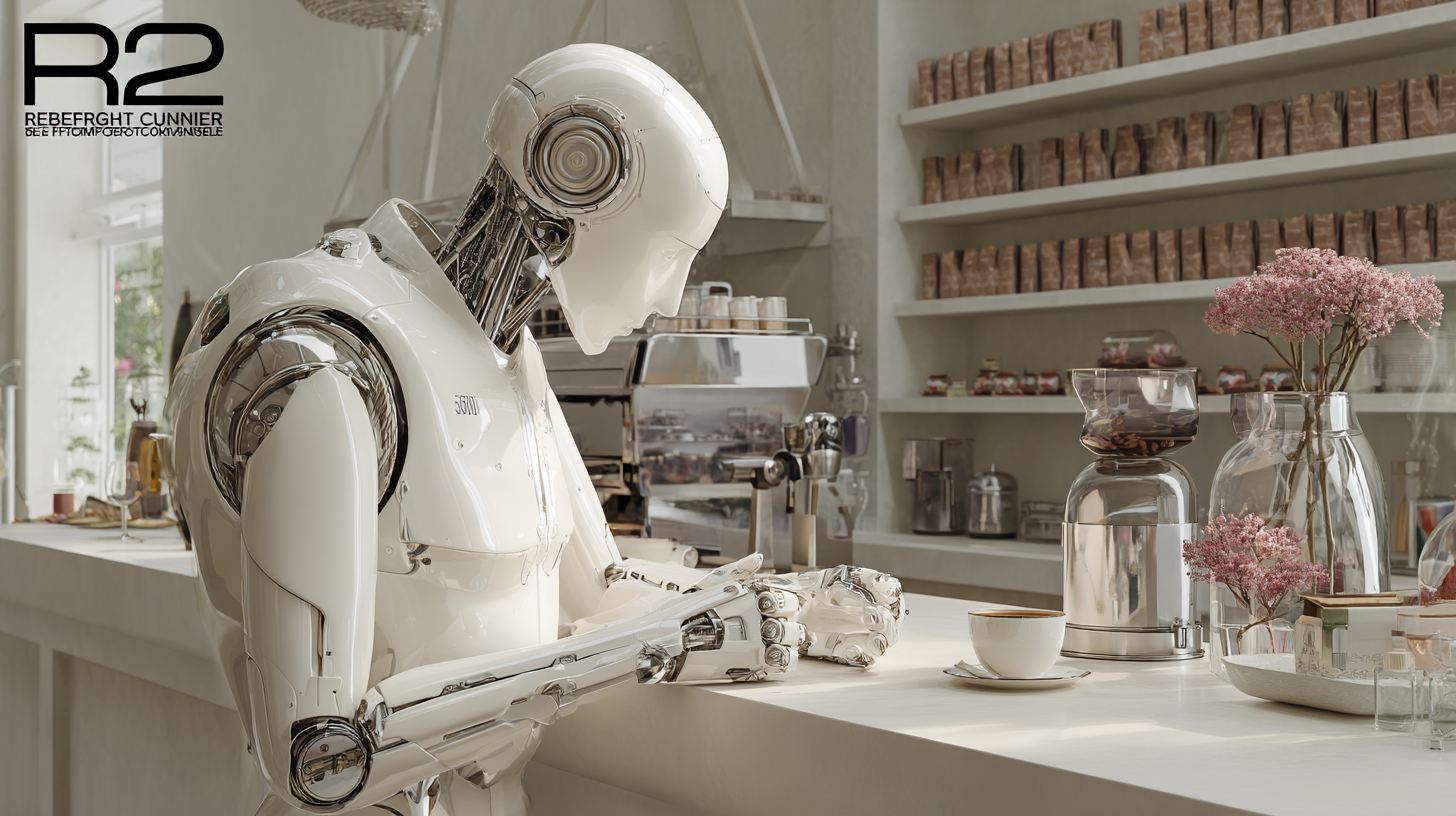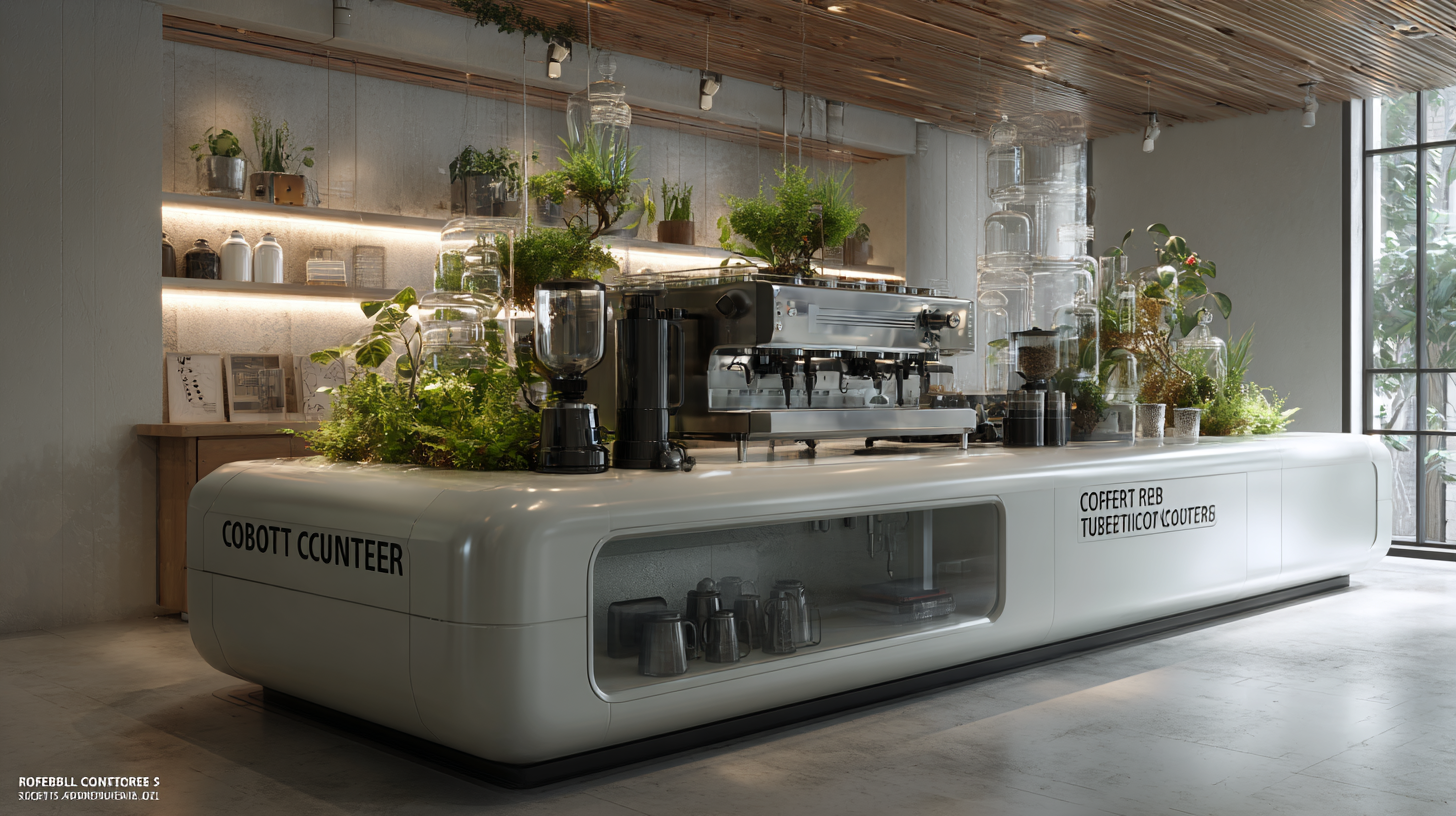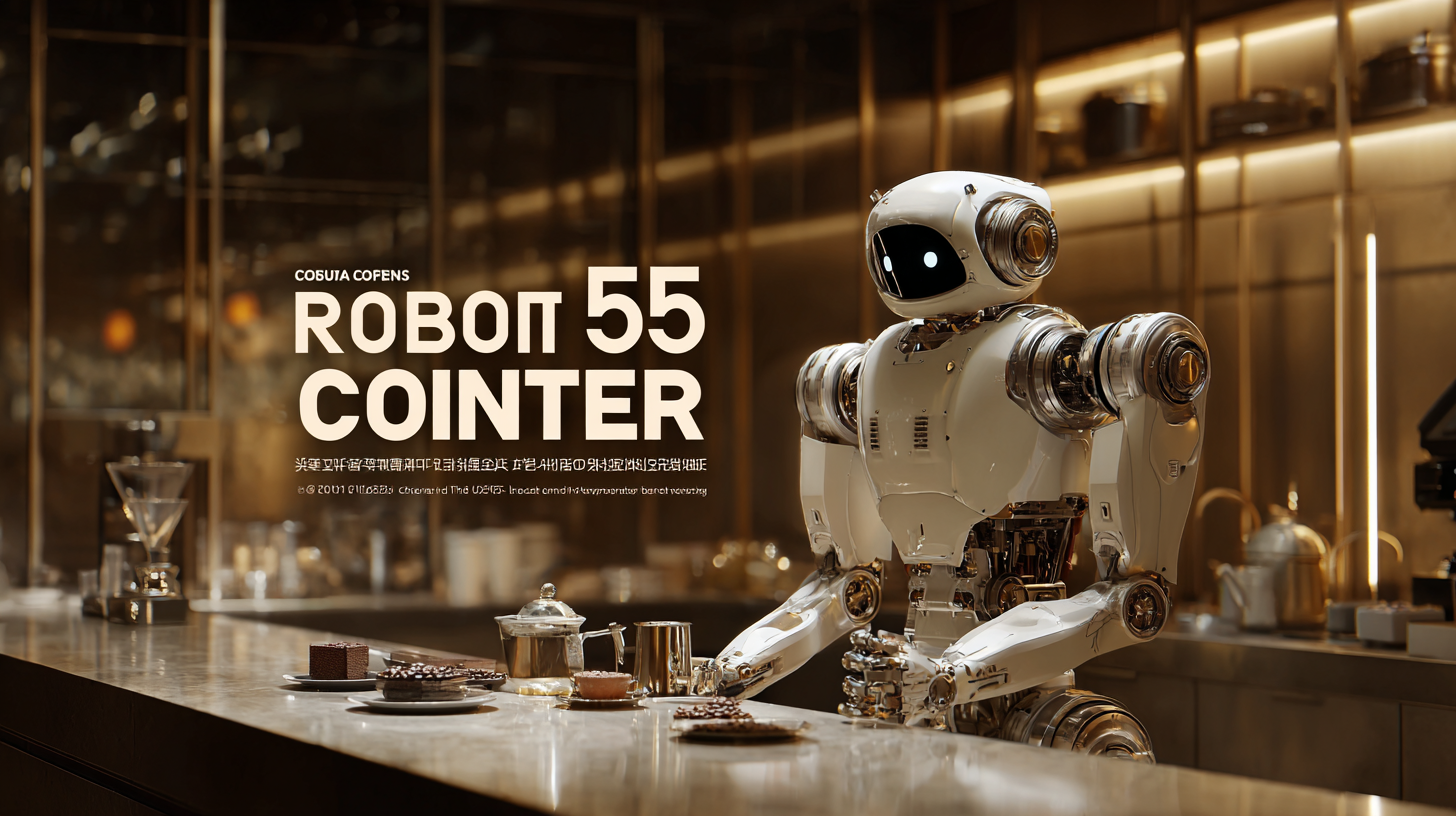2025 Global Coffee Trends Unveiling the Best Robot Coffee Counter Innovations
In the rapidly evolving world of coffee, the emergence of the Robot Coffee Counter marks a significant shift in how we experience our daily brew. By 2025, this innovative technology promises to redefine the coffee landscape, offering efficiency, consistency, and a unique customer experience. However, alongside these advancements come potential challenges that must be navigated.

From the technical intricacies of automation to concerns about barista job displacement, the integration of Robot Coffee Counters into cafes and homes raises important questions. As we delve into the latest trends shaping the future of coffee, we will explore both the groundbreaking innovations and the underlying problems associated with the rise of robotic baristas, shedding light on the delicate balance between technological progress and the human touch that has long defined the coffee culture.
Exploring the Impact of Robotics on Coffee Supply Chains in 2025
As we approach 2025, the coffee industry is witnessing a remarkable transformation driven by advancements in robotics. The integration of robotic technology into coffee supply chains is not only enhancing operational efficiency but also ensuring sustainability. Automated coffee picking systems, for instance, are revolutionizing how coffee beans are harvested, significantly reducing labor costs and minimizing the impact on the environment. These innovations allow farmers to optimize their yields while maintaining the quality of coffee, essential for catering to the increasingly discerning palate of global consumers.
Furthermore, robotic solutions are streamlining logistics and distribution processes within coffee supply chains. With autonomous vehicles and drones handling the transportation of coffee beans from farms to processing facilities, the time from farm to cup is significantly shortened. This efficiency leads to fresher products reaching consumers faster, ultimately impacting the overall coffee experience. As technology continues to advance, we can expect even more sophisticated robotic platforms that enhance traceability and transparency in supply chains, allowing consumers to feel more connected to their coffee's journey from farm to final brew.
2025 Coffee Supply Chain Robotics Impact
Key Features to Look for in Robotic Coffee Counter Solutions
As the coffee industry evolves, the integration of robotic coffee counters is becoming increasingly prominent. When considering a robotic coffee solution, one of the key features to look for is customization capability. Modern coffee machines should offer patrons the ability to tailor their beverages to individual tastes, adjusting factors such as strength, sweetness, and milk type. This not only enhances the customer experience but also fosters loyalty as users can craft their perfect cup of coffee.
Another essential feature is user-friendly technology. A seamless interface, whether through a touchscreen or a mobile app, ensures that customers can easily navigate the options available. Moreover, connectivity features like integration with loyalty programs or smart device compatibility can significantly elevate the convenience factor. Lastly, efficiency in service is paramount; robotic coffee counters should be adept at processing orders quickly without compromising on the quality of the brew, catering to the fast-paced environments in which they often operate.
Evaluating Supplier Reliability: What Every Coffee Innovator Should Know
As the coffee industry continues to evolve, the role of supplier reliability becomes increasingly critical for innovators aiming to launch the latest robot coffee counters. Choosing suppliers who can consistently deliver high-quality products is essential to maintaining the standards of your coffee innovations. Evaluating potential partners not only involves assessing their products but also understanding their operational practices, financial health, and customer reviews.
**Tips:** When evaluating suppliers, consider their track record with product quality and delivery timelines. Look for testimonials from other businesses in the coffee sector to gauge reliability. It's also wise to engage in trial partnerships to observe their performance before making long-term commitments.
Furthermore, sustainability practices should also be a priority when selecting suppliers. Consumers are becoming more conscious of environmental impacts, so aligning with suppliers who share your values can enhance your brand's reputation.
**Tips:** Inquire about suppliers' sourcing methods, waste management, and energy use. Certifications from recognized sustainability organizations can also be a green light for your choice. Building a strong relationship with suppliers can lead to better support, innovation collaborations, and shared marketing initiatives, benefiting both parties in the competitive coffee market.
2025 Global Coffee Trends Unveiling the Best Robot Coffee Counter Innovations
| Innovation Type | Description | Supplier Evaluation Criteria | Reliability Score (out of 10) |
|---|---|---|---|
| Automated Brewing Systems | Machines that brew coffee automatically using precise temperature and timing controls. | Quality of Components, Customer Support, Delivery Timeliness | 8 |
| IoT-Enabled Coffee Makers | Smart coffee machines that can be controlled via a mobile app. | Technological Integration, Software Updates, User Reviews | 9 |
| Self-Cleaning Coffee Makers | Machines that feature self-cleaning capabilities for easy maintenance. | Ease of Use, Maintenance Costs, Performance Ratings | 7 |
| Personalized Coffee Dispensers | Machines that allow users to customize their coffee preferences extensively. | Customization Options, User Interface, Versatility | 9 |
| Robotic Baristas | Robots designed to brew and serve coffee autonomously. | Innovation, Operational Efficiency, Cost-Effectiveness | 8 |
Sustainability in Coffee Robotics: Choosing Eco-Friendly Suppliers
As coffee culture evolves, the integration of robotics in the coffee industry is not just about efficiency but also about sustainability. The latest innovations in robotic coffee counters are focused on reducing waste and minimizing environmental impact. By choosing eco-friendly suppliers, coffee businesses can incorporate sustainable practices that resonate with the values of modern consumers. For instance, robots that use biodegradable materials or operate on renewable energy sources are becoming increasingly popular, allowing coffee shops to serve ethically sourced brews while reducing their carbon footprint.
In addition to eco-friendly robotics, maintaining sustainability also involves the sourcing of coffee beans and materials. Coffee shops are encouraged to partner with suppliers who prioritize sustainable farming practices and offer transparent supply chains. By supporting these eco-conscious suppliers, businesses not only enhance their product offerings but also contribute to the overall health of the planet. As the 2025 global coffee trends continue to unfold, the focus on sustainability in coffee robotics exemplifies a powerful shift towards responsible consumption and production in the coffee industry.

Future-Proofing Your Coffee Business with Advanced Technology Partnerships
As we step into the future of coffee business, the integration of advanced technology is proving essential for staying competitive. Strategic partnerships in technology not only bring innovation but also allow coffee companies to optimize their operations. By collaborating with tech-savvy firms, businesses can incorporate robotics and artificial intelligence into their daily operations, enhancing both customer experience and operational efficiency. For instance, the introduction of robotic coffee counters offers precise brewing and personalized customer interactions, allowing baristas to focus on creating unique coffee experiences.

Moreover, leveraging data analytics through technology partnerships enables coffee businesses to make informed decisions. By understanding market trends and customer preferences, companies can tailor their offerings and streamline inventory management, reducing waste and boosting profitability. The fusion of data science and coffee craftsmanship paves the way for adaptive business models that can respond swiftly to changing consumer demands. Embracing these advanced technological solutions not only future-proofs coffee enterprises but positions them at the forefront of the ever-evolving industry landscape.